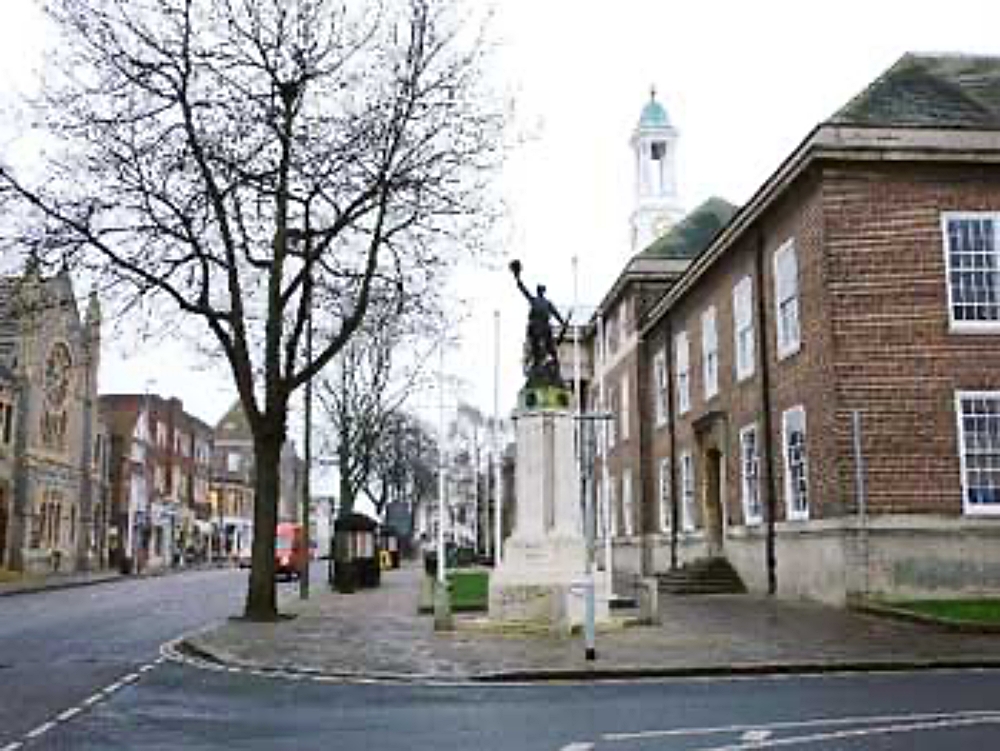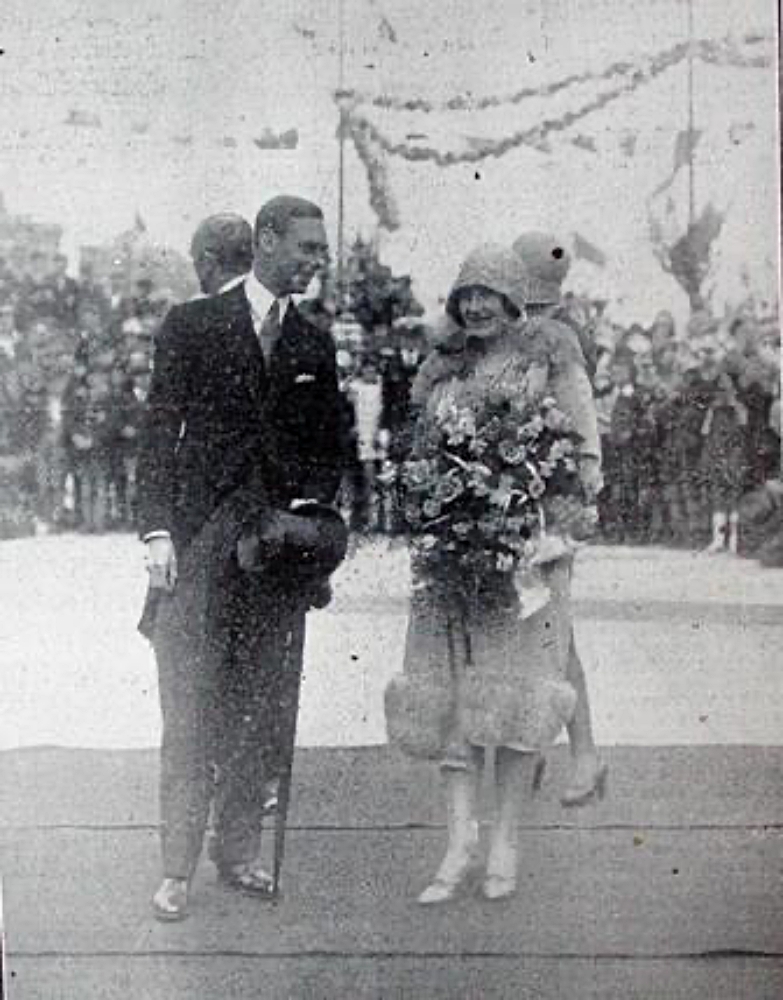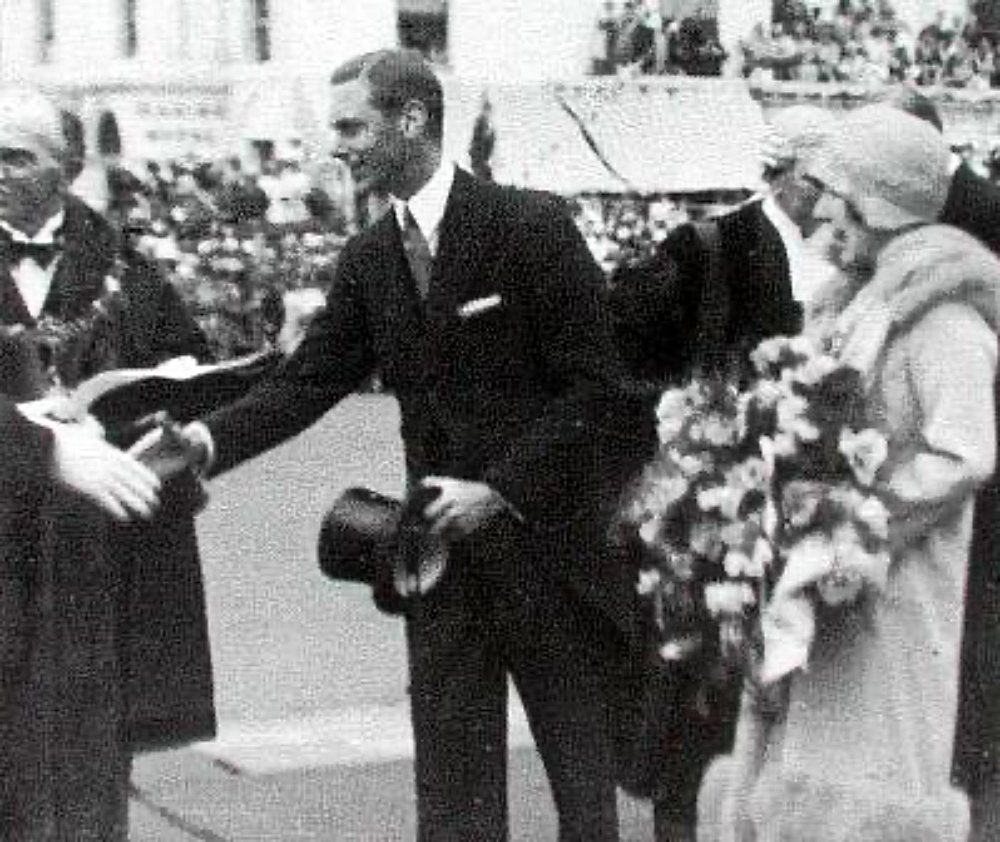A right royal do

FEW people who pass them today will know why those very large trees are growing directly in front of Worthing Town Hall.
The two copper beeches and two Turkey oaks were planted to commemorate a major event 70 years ago, yet bear no memorial plate or label.
So I’ll give you a clue.
Their planting was accompanied by a Royal Salute of 21 guns, fired in the grounds of Beach House Park by the 228th (H) Sussex Field Battery of the RA (Territorial Army), using 4.5-in howitzers.
If you haven’t guessed, it was the coronation in 1937 of King George VI and Queen Elizabeth.
WHEN Worthing celebrated three earlier coronations – of Queen Victoria in 1838, Edward VII in 1902 and George V in 1911 – the town found it difficult to raise enough money to cover the cost.
But this didn’t happen in 1937.
Perhaps the organisers lacked imagination when planning those previous coronation celebrations. Or maybe the previous monarchs simply lacked the enormous popular appeal of George and Elizabeth of York, with their two princesses, Elizabeth and Margaret Rose.

To mark those three previous coronations, Worthing’s civic fathers settled for a lunch or tea party for the young, poor and the elderly (on one occasion, all three together), with a small procession of local organisations as a kind of bonus. Not many were impressed.
In contrast, the coronation of George VI and Elizabeth in 1937 was celebrated with masses of colour, a great deal of enthusiasm and in spirited style.
Coronation day, 1937, opened with a civic service at St Paul’s. At noon, the firing of a Royal Salute of 21 howitzers echoed around the town and, in the afternoon, a procession that included more than 50 decorated floats and lorries passed through the lavishly decorated streets.
A record crowd of more than 60,000 spectators cheered them on their way – consider-ably more than the entire population of Worthing at the time.
The mayor, Alderman C. B. Barber, made the obligatory ceremonial speech in front of the Pier Pavilion, but it was what immediately followed that set the tone of that day.
A huge crowd jammed into South Street, Montague Street and the seafront, spontaneously bursting into several verses of Land of Hope and Glory, followed by three rousing cheers for the new King and Queen.
That evening, Homefield Park was brilliantly illuminated and brought to life by hundreds of dancers.
A grand ball was held in the Pier Pavilion and the sky was ablaze with the biggest display of fireworks the town had ever seen.
Next day, children’s tea parties and entertainments included one for 2,000 children in the Pier Pavilion and another for more than 1,000 in the Assembly Hall. Each child received a souvenir beaker and coronation book. I wonder how many still have it today?
Spontaneous parties were held throughout the town, with long trestle tables erected down the centre of streets, which had been specially closed to traffic for the occasion.
On the Friday, 400 elderly citizens had tea with the mayor at the Town Hall – and none went home empty-handed, each receiving a souvenir gift of a canister of tea or tobacco.
That night, a coronation bonfire blazed on the summit of Cissbury Ring, cheered on by a crowd of more than 1,000 people.
Floodlighting was still a novelty in Worthing 70 years ago, but, on that May night, it was widely used as part of the town’s official decorations for the first time.
The grand finale of the week-long celebrations was a lavish coronation ball for 600 guests at the Assembly Hall.
How differently the town had greeted the coronation of Edward VII 35 years earlier. That occasion was a small, distinctly sombre affair and didn’t even include the traditional military band. Worth-ing’s first recorded celebration of a coronation was that held to mark the crowning of the young Queen Victoria in June, 1838.
A committee of prominent citizens, with the High Constable in the chair, “resolved that the day be a public holiday and that a dinner be given to all the poor children attending the several schools in Worthing and Broadwater and to all other children under the age of 14 years”.
In those days, there were no local government fund, to meet the costs, so the next question was – who would pay for the event?

A sub-committee was formed “and charged with raising subscriptions”. To set a suitable example, it was suggested that a collection be made among members in the room, but that raised only £20.
In the following week, the committee managed to drum up a total of just £109 4s 6d, hardly enough, one might feel, to meet the cost of a loyal town’s coronation celebrations.
Despite this, Victoria’s coronation day (June 28, 1838) opened in Worthing with what a contemporary observer described as “a feeling of loyalty and a determination to enjoy the celebrations, pervading all classes in the town, judging from the happy faces and good conduct that universally prevailed”.
At 12 noon, the Blockade Force stationed in the town “fired a joyful fusillade in honour of the day”.
By 1pm, more than 1,900 of the town’s oldest residents had assembled with children of the different schools in Mr Burden’s field, opposite the Town Hall, to be regaled with 1,200 pounds of roast and boiled beef, 350 gallons of good ale “and plum pudding in proportion”.
A band gathered together by Mr Slater, of the Marine Library, enlivened the proceedings.
That evening, “the committee and other gentlemen, numbering 70, adjourned to the Town Hall for a cold dinner provided by Mr Parsons of the Sea House Hotel.
“Mr Charles Roberts, High Constable, was in the chair and a very pleasant time was spent”.
Note that only men were invited. Had the young Queen Victoria known, she might have uttered the phrase “we are not amused” much earlier in life than history records.